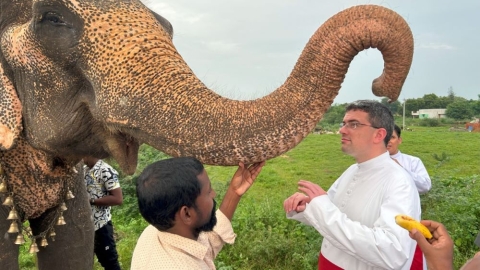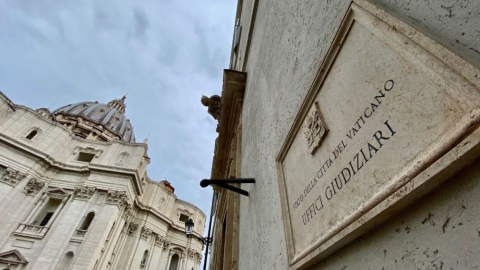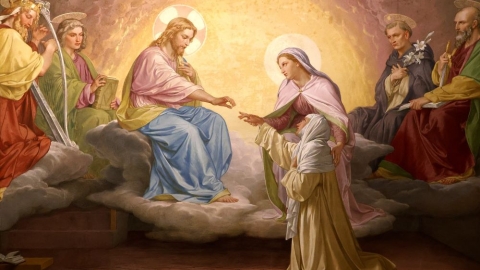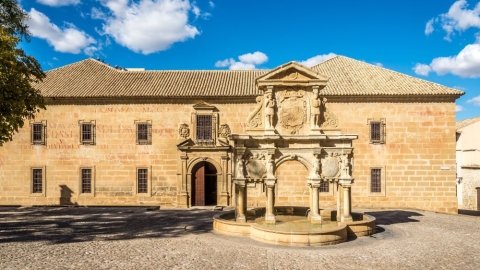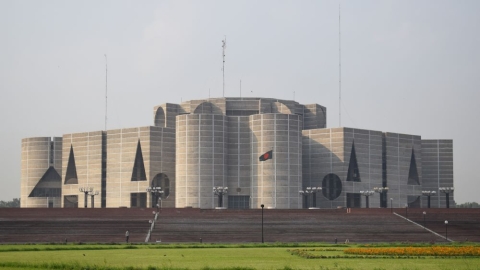Unforeseen Developments in the Reform Process of the Order of Malta

The Grand Chancellor of the Order of Malta, Albrecht von Boselager
Shock after shock in the reform of the Order of Malta. After months of tension, a lull took place on January 25 and 26. But from Monday, January 31, everything was called into question by Pope Francis himself.
The venerable Sovereign Military and Hospitaller Order of Saint John of Jerusalem, known as Rhodes or Malta, has been in turmoil for more than five years.
Even if the fact is not at the origin of the difficulties, it contributed to it and revealed a power struggle within the Order: on January 24, 2017, Matthew Festing, the 79th Grand Master submitted his resignation to Pope Francis, who, as we later learned, had asked for it. This departure concluded an affair that had pitted the Grand Master against the Grand Chancellor of the Order, Albrecht von Boselager.
The latter, accused of having covered up the fact that the Order had been distributing condoms and abortive means in Africa and Asia, had been fired by Matthew Festing. But after a behind-the-scenes struggle, it was ultimately the Grand Master who had to relent, and the Grand Chancellor was reinstated.
But the fundamental difficulty lies in the constitutional reform launched in June 2017. Two elements have been the source of serious dissension within the Order for years. First, the managment of economic and financial interests remains in conflict.
Thus, the main problem concerns the very essence of the Order: should it remain an organism, with a strong religious imprint, linked to Catholic doctrine, as it has always been? Or should it evolve into a more secular structure, more like an NGO freed from certain duties?
The stakes are immense: on the one hand, it is about controlling an institution with an unequaled presence in the world, acting at various levels of civil society, and whose human and financial resources are significant. But on the other hand, it is the status of a very old Order which has gone through the centuries spreading good, and which risks losing its own character.
In other words, is the Order of Malta an order of religious hospitaller brothers, therefore subject to the Holy See as “religious,” deploying in particular a humanitarian and medical NGO activity? This is the Pope's preference. Or is it a medical and humanitarian organization, but not structured as a religious order, and therefore partly autonomous from the Holy See?
After the appointment of Cardinal Silvano Tomasi in November 2020 as cardinal protector, in charge of helping the reform process, things seemed to have gradually calmed down.
The reform bill contained a modification of the sovereignty that troubled some members. Indeed, currently the Order is defined as a “subject of international law” with all related “functions of sovereignty.” However, the envisioned plan for the Order is to become “a subject of the Holy See which would recognize and protect it as a body of international law.”
It was enough for Grand Chancellor Boeselager to send a letter to all the knights to argue that the revision risked weakening sovereignty and contradicted the papal assurance not to touch it.
The Roman meeting of January 25 and 26 finally gave guarantees as to the preservation of the sovereignty of this institution in relation to the Holy See. The principle of independence was even formally recorded thanks to internal resistance and a lot of discussion.
Albrecht von Boeselager could write his satisfaction to the highest officials of the order: “We have received satisfactory assurances that there is no intention to violate, in any way, the sovereignty and the right to govern the Order of Malta autonomously. Consequently, several articles of the proposed Constitution have been amended accordingly.”
The Pope Takes Charge
But the respite was only very short-lived. A dramatic change occurred on Saturday January 29. After having received in private audience Cardinal Tomasi and the Jesuit Gianfranco Ghirlanda, one of the greatest experts in canon law, the pope decided to take matters into his own hands, to question the agreement announced the day before, to impose the suspension of all activity relating to this reform until he himself decides, by threatening those who refuse to obey him.
Cardinal Tomasi therefore addressed, on Sunday 30, several senior officials of the Order of Malta asking, in the name of the pope, that they freeze all initiatives and activity until Francis personally receives a delegation from this institution to “make a final decision himself” on the basis of a “concrete reform project” which will have to be presented to him.
To make himself obeyed, the delegate of Pope Francis resorts to the threat that “any other activity” with a view to the reform of the Order “will be considered as an act of disobedience to the Holy Father.”
Many in the Order of Malta say they are “shocked” by such authoritarian methods of government, although others, in favor of drastic reform, are reassured.
For the time being, the executive head of the Order of Malta, Albrecht Freiherr von Boeselager, Grand Chancellor, took note, by internal letter, of Francis's decision, expressing his “recognition,” and pledging “fidelity” to him in the name of the Order.
Related links
(Sources : Le Figaro/Il Messagero/Wikipedia/FSSPX.Actualités – FSSPX.Actualités)
Illustration : Flickr / Présidence de la République du Bénin (CC BY-NC-ND 2.0)
